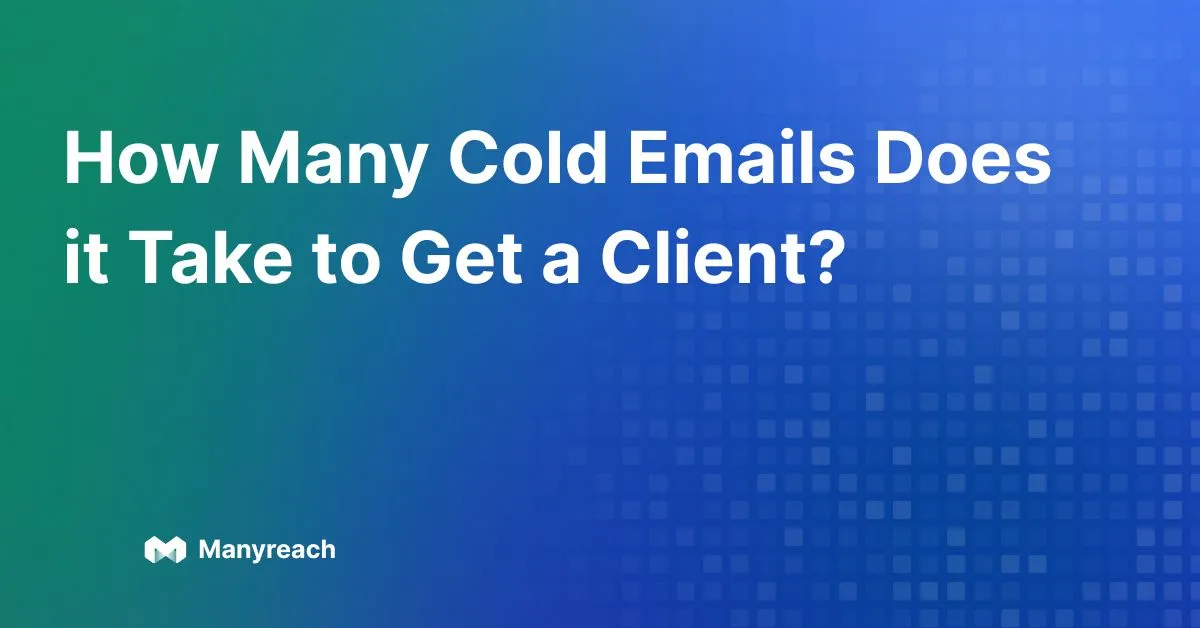SQO Meaning: What is it & Why Does it Matter in 2025?

In today’s fast-paced sales world, not every lead is worth pursuing. The key to closing more deals? Focusing on Sales Qualified Opportunities (SQOs)—the leads most likely to convert. But what exactly is an SQO, and why is it a game-changer for your business in 2025? Let’s dive in.
What is an SQO?
Definition of SQO
A Sales Qualified Opportunity (SQO) is a lead that has met strict criteria, including strong intent, sales engagement, budget, and timing, making them highly likely to convert into a customer.
In simple words, SQO represents leads that have been thoroughly evaluated by both marketing and sales teams, ensuring their potential to convert into paying customers. These are the prospects with whom you can plan to network and build a positive relationship.
How is an SQO different from SQL?
A Sales Qualified Lead (SQL) is a lead that shows interest and fits basic criteria, but may not be ready to buy yet. An SQO goes further—it’s an SQL that has been vetted by sales, confirmed intent, and budget, making it a near-ready opportunity to close.
Follow this table to understand what SQO vs SQL is:


Examples of SQOs in Different Industries
1. SaaS (Software)
Imagine a mid-size company signs up for a product demo. During the call, they mention their budget is already approved and they want to roll out a new tool this quarter.
This is an SQO because: they’ve shown intent (booked demo), engaged with sales, confirmed budget, and have a clear timeline.
2. E-commerce
A retailer contacts your team asking for bulk pricing on a new product line. They also mention their launch date is set for next month.
This is an SQO because: they reached out directly with buying intent, they have a deadline (launch date), and bulk pricing shows they’re serious buyers.
3. B2B Services
A manufacturing company attends a discovery call, then asks for a formal proposal. They also reveal they want to switch vendors within 60 days.
This is an SQO because: they’re already talking to sales, they’ve identified a problem (current vendor not working), they have a clear budget and timeline, and they’re actively moving toward a decision.
4. Healthcare
A hospital administrator reaches out for a quote on medical software. They confirm the funds are already allocated and schedule a pilot program.
This is an SQO because: they meet the criteria (healthcare buyer), they’re ready to test your solution (pilot), and they’ve secured funding, which makes it a strong opportunity.
5. Education (EdTech)
An IT director at a university attends a demo and says the budget is already approved. They want the software deployed before the next semester starts.
This is an SQO because: the lead matches your ICP (universities), they have confirmed budget, and there’s urgency since the semester start date is fixed.
Characteristics of an SQO
An SQO usually has these traits:
They’re genuinely interested in buying, not just curious.
They’ve already talked to your sales team or booked a demo.
They look like the type of customer your company usually serves.
Their problem matches what your product actually solves.
They have both the budget and the timeline to make a decision soon.
Now, let’s break each one down so you can see why they matter:
1. Shows Buying Intent
This means the lead isn’t just browsing but they’re actually serious about solving their problem.
For example, instead of just downloading a free guide, they might ask, “Can we schedule a demo?” That shows they’re moving closer to buying.
2. Engaged with Sales
An SQO doesn’t stop at clicking ads or reading blogs. They’ve already interacted with your sales team, maybe joined a product demo, asked questions in an email, or even compared pricing.
The more they talk to sales, the warmer the opportunity becomes.
3. Alignment with Criteria
Every company has ideal customer profiles (ICPs). For example, a lead generation agency might want to target only “mid-size SaaS companies in the US with 20–200 employees”. That is one of their ICPs.
If a lead fits their ICP, sales won’t waste time chasing the wrong type of customer. Think of it as a checklist to see if the lead matches who you can actually sell to.
4. They’re Solution Fit
It’s not enough that they want something; it has to be what you offer. If a company wants advanced analytics, and that’s exactly what your product does, that’s a solution fit. If they need something totally unrelated, they’re not a real opportunity, even if they like your product/service.
5. They’ve a Budget and Timing
Finally, they must have the money and a timeline to buy. Someone saying, “We love your tool, but maybe next year when we get more budget” isn’t an SQO yet. But if they say, “We’re ready to move forward this quarter” - that’s a solid SQO.
Why SQOs Are Important
Here’s the short version. SQOs matter because they:
Help sales teams focus on the right leads instead of wasting time
Close more deals since these leads are already well-qualified
Make it easier to predict sales and revenue
Allow for more personalized sales conversations
Keep marketing and sales working in sync
Now let’s break down why SQOs are important in more detail:
Improved Sales Efficiency
When sales reps chase every single lead, they end up wasting time on people who were never going to buy. SQOs filter that noise. By focusing only on high-potential leads, sales teams spend their energy where it counts, leading to better productivity and smarter use of resources.
Higher Conversion Rates
SQOs are not just random prospects; they have already been vetted and show strong buying signals. That is why they convert faster and more often than generic leads. Businesses that prioritize SQOs usually see shorter sales cycles and more deals closing.
Better Sales Forecasting
Knowing how many SQOs you have in the pipeline makes predicting revenue much easier. If you are tracking SQOs correctly, you can estimate sales outcomes with more accuracy, which helps leadership make smarter decisions about hiring, budgets, and growth plans.
Personalized Sales Approach
Since SQOs come with more context, such as their challenges, needs, or budget, sales teams can tailor conversations. Instead of sending generic pitches, reps can say: “Here is exactly how we solve the issue you mentioned.” This kind of personalization builds trust and increases the chance of a win.
Strategic Sales Alignment
SQOs create a natural bridge between marketing and sales. Marketing hands off leads that already meet set criteria, and sales can confidently move forward knowing these are serious prospects. The result is fewer leads falling through the cracks and a smoother journey from interest to closed deal.
Why Do SQOs Matter in 2025?
You now know the overall importance of SQO in sales. But, what does SQO mean in sales in 2025, and why is it important now more than ever?
To answer it simply, in 2025, B2B companies are tightening budgets and demanding higher ROI from sales teams. So, SQOs are more important now as it helps in higher conversion rates and ROI.
Having a clear definition of an SQO makes sure:
Better forecasting accuracy
See, SQOs are the sure-shot leads, who have 80% chances of partnering with companies. So the sales leaders can predict revenue more reliably for the business.
Improved sales-marketing alignment
Marketing only passes leads that sales can actually close. That way, the responsibility to bring profit into the company gets balanced out equally.
Higher win rates
Reps focus on the most promising opportunities instead of chasing unqualified leads. So, the chances of conversion increase, with new partnership opportunities coming in frequently.
Shorter sales cycles
SQOs enter the pipeline with clear intent, reducing wasted time. So, there’s no multiple pre-partnership meetings, both parties remain on the same page and deals get closed easier.
How to Identify an SQO
Identifying an SQO requires more than just tracking a lead’s interactions. Businesses must analyze behaviors, financial capacities, and demographics to determine opportunities. Basically, your definition of an SQO should align with your company’s sales methodology.
Here are the primary indicators:
Engaged Behavior – The lead regularly interacts with your brand by attending webinars, requesting product demos, or responding to emails.
Fits Ideal Customer Profile – The lead matches your target industry, company size, and job role.
Budget Availability – They have the financial resources to make a purchase.
Pain Point Alignment – They have a specific challenge that your product or service solves.
Apart from these, here are some factors that can help you measure SQOs in your pipeline:
- Conversion rate from SQL to SQO
- The percentage of SQOs that turn into customers
- What is the average sales cycle length for the partnership?
- How did the pipeline contribute to forecasted revenue?
Sales Qualification Frameworks
To further refine SQO identification, many businesses use structured qualification frameworks that provide a systematic approach to evaluating leads. The two most commonly used frameworks are BANT and MEDDIC:
BANT (Budget, Authority, Need, and Timing)
Developed by IBM, BANT is a straightforward framework that helps sales teams determine if a lead is worth pursuing based on four key factors:
Budget – Does the prospect have the financial resources to afford the solution?
Authority – Is the person you’re speaking with a decision-maker or an influencer in the buying process?
Need – Does the prospect have a clear need for your product or service?
Timing – Is there urgency, or is the prospect looking for a solution in the near future?
BANT is effective for quick qualification and works best in structured sales processes where budgets and decision-makers are clearly defined.
MEDDIC (Metrics, Economic Buyer, Decision Criteria, Decision Process, Identify Pain, Champion)
MEDDIC is a more comprehensive framework designed for complex B2B sales. It helps sales teams dig deeper into the buyer's decision-making process and focuses on:
Metrics – What quantifiable benefits will your solution bring to the prospect (e.g., cost savings, increased efficiency)?
Economic Buyer – Who has the final say in approving the purchase?
Decision Criteria – What factors does the company use to evaluate solutions like yours?
Decision Process – What steps must be taken internally before the deal can be closed?
Identify Pain – What critical problems does your solution address?
Champion – Is there an internal advocate pushing for your solution within the prospect’s organization?
MEDDIC is especially useful for enterprise-level sales and high-ticket deals where multiple stakeholders are involved.
Choosing the Right Framework
While BANT is great for quick qualification, MEDDIC offers a deeper understanding of the sales process in complex deals. Depending on your business model, using a combination of these frameworks can enhance your SQO strategy and improve deal closure rates.
FAQs
Q1: What does SQO mean in sales?
An SQO stands for Sales Qualified Opportunity. It means that a vetted lead that your sales team has confirmed is pipeline-ready and has a high chance of converting.
Q2: What is the difference between SQL and SQO?
SQL means Sales Qualified Lead, on the other hand SQO means Sales Qualified Opportunity. So an SQL gets promoted into an SQO once the sales team verifies it meets deeper criteria like budget and timeline.
Q3: What is a qualified sales opportunity?
A qualified sales opportunity is a lead that has been vetted for Budget, Authority, Need, and Timeline (BANT). These kinds of leads are ready for active engagement in the sales process.
Q4: How do you measure SQOs?
Businesses measure SQOs by tracking conversion rates from SQL to SQO, conversion rates, pipeline contribution to revenue, and sales cycle length.
Q5: Does SQO mean something outside of sales?
Yes, sometimes it does. For example, in programming, SQO can refer to Sequencer Output in ladder logic. It is unrelated to sales and should not be confused with SQL (Structured Query Language).
Conclusion: SQOs Are the Bridge Between Leads and Revenue
Leveraging SQOs effectively is the key to staying ahead of the competition. By identifying and focusing on high-quality leads, businesses can improve efficiency, enhance sales forecasting, and drive sustainable revenue growth.
If you're looking for a powerful way to streamline your lead qualification process and improve your outreach, Manyreach can help. Our platform automates bulk email outreach, auto-detects sentiments and marks interested prospects as “interested”, and ensures your sales team focuses on the right opportunities. With Manyreach, you can close more deals, maximize your ROI, and stay ahead in 2025 and beyond.
Are you ready to optimize your sales strategy? Try Manyreach today!

.webp)







